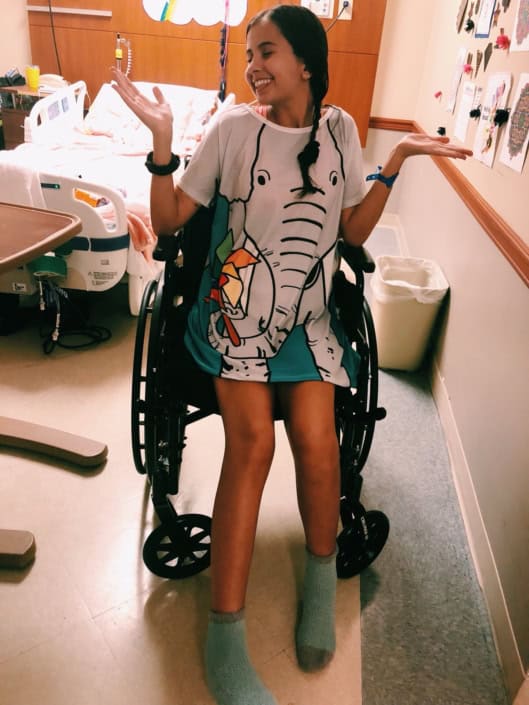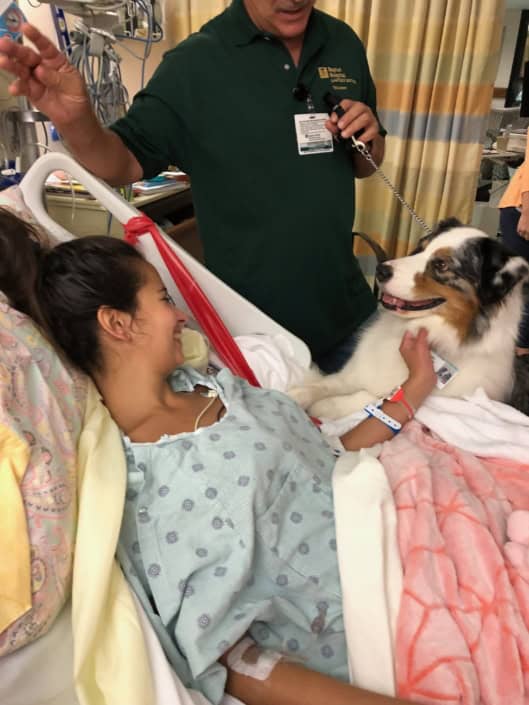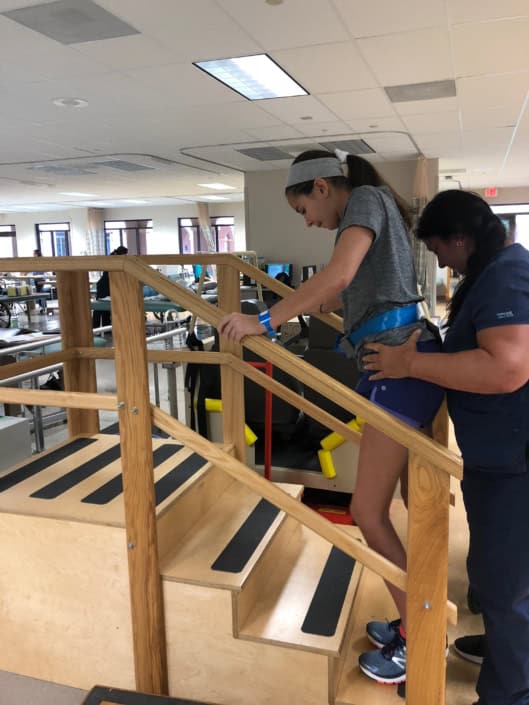There is No “Back to Normal”
By Sophie Barry
It was 2018. I had just voted for the first time and was two days away from leaving for college. I went to bed a regular 18-year-old. Everything was so normal. Until it wasn’t.
I woke up the next morning and immediately knew something was wrong. I tried to get out of bed, but my legs were too weak, and I collapsed. I pulled myself back onto the bed and called my parents, who were only two rooms away. They called my doctor, who told them I was probably just having a panic attack. When that theory didn’t check out, I was rushed to the hospital and thrown into an MRI. The scans revealed severe spinal inflammation, and soon after, I was diagnosed with Transverse Myelitis (TM).
A lot of people assume I was really scared at the time, but the truth is I wasn’t scared so much as confused. I had no understanding of the situation. But how could I? I had been healthy my whole life and had never heard of this “Transverse Myelitis” thing. When I was told I needed five rounds of plasmapheresis (a plasma exchange treatment), I remember thinking, “Oh that won’t work–I have to start school in a few days.” Little did I know, I wouldn’t even be able to feel or move anything below my stomach for 11 days, not to mention losing control of my bladder and bowel functions as well. My first glimmer of hope finally came in the form of what was essentially a small twitch in my left thigh. Slowly, very slowly, things started to progress after that.
Months of treatments and physical rehabilitation followed, and I was extremely fortunate to regain my strength and mobility and start college just one semester late. When people saw my recovery, they often said it was great that everything was “back to normal.” But the truth is, recovery isn’t just physical. The emotional toll of a sudden, life-altering diagnosis lingers. It’s isolating, terrifying, and often, it feels like no one else truly understands.
That’s why SRNA means so much to me. Finding this organization felt like finding solid ground. I started by attending the Young Adult Support Group Meetings, where I met people who just got it—people who made me feel less alone. I also participated in a Walk-Run-N-Roll, an experience so meaningful that it inspired me to plan my own.
Connect with Sophie, hear more stories, and get to know the SRNA community at the upcoming Northeast Walk-Run-N-Roll in New York, New York. Support by attending, donating, or helping us spread the word. Find all upcoming Walk-Run-N-Roll events on our website.
Our “In Their Own Words” blog posts represent the views of the author of the blog post and do not necessarily represent the views of SRNA.









